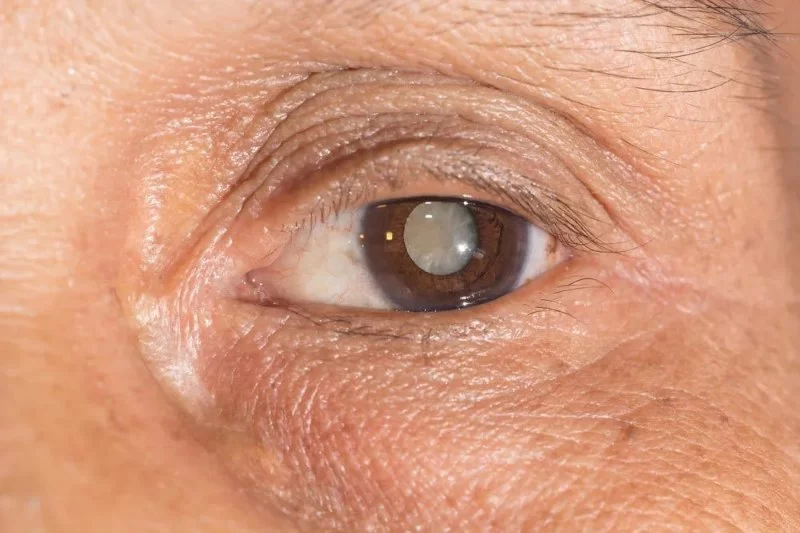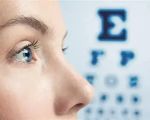
- what-cataracts-are-and-how-they-affect-your-vision
- early-symptoms-of-cataracts-you-shouldnt-ignore
- advanced-warning-signs-and-vision-changes
- real-patient-experience-when-symptoms-became-clear
- when-to-see-a-doctor-for-cataract-evaluation
- how-eye-docs-can-help-you-manage-cataracts
1. What Cataracts Are and How They Affect Your Vision
Cataracts are a common yet often misunderstood eye condition. They occur when the natural lens of the eye becomes cloudy, leading to blurred or dimmed vision over time. While often associated with aging, cataracts can also develop due to eye injuries, diabetes, or prolonged exposure to UV light.
Understanding the symptoms of cataracts and when to see a doctor is essential for early intervention. With timely care, vision loss from cataracts can often be reversed through surgery, restoring clarity and quality of life.
2. Early Symptoms of Cataracts You Shouldn't Ignore
In the early stages, cataracts may be subtle and mistaken for normal aging or fatigue. However, certain signs point clearly toward the beginnings of lens clouding.
2.1 Blurry or Cloudy Vision
Many people first notice their vision seems like they’re looking through a fogged-up window. It doesn’t improve with blinking or eye drops, and it gradually worsens.
2.2 Sensitivity to Light and Glare
Headlights, street lamps, or sunlight may suddenly feel too intense. You might squint more often or feel discomfort driving at night.
2.3 Faded or Yellowing Colors
Colors may appear less vibrant or have a yellow tint. This often goes unnoticed until it’s compared side by side with someone else's perception.
2.4 Difficulty with Night Vision
Cataracts can reduce contrast sensitivity, making it hard to distinguish objects in dim lighting. Many patients report this symptom long before they realize they have cataracts.
3. Advanced Warning Signs and Vision Changes
As cataracts progress, the symptoms become more disruptive. Recognizing these signs is a clear indication that it’s time to consult a professional.
3.1 Double Vision in One Eye
Double vision that doesn’t go away when closing one eye can be a strong sign of advanced cataracts. It’s often misattributed to neurological conditions or other eye issues.
3.2 Frequent Prescription Changes
Needing to update your glasses or contact lenses more than once a year could be more than aging—it could mean your lens is clouding.
3.3 Seeing Halos Around Lights
Halos or rings around light sources, especially at night, are common in advanced stages. This affects night driving and increases the risk of accidents.
4. Real Patient Experience: When Symptoms Became Clear
Barbara, 68, thought her vision problems were due to old glasses. “I was constantly adjusting my reading lamp and squinting at menus,” she shared. “Colors looked dull, and headlights became unbearable. I didn’t know it was cataracts until I visited Eye Docs.”
After diagnosis and a successful outpatient procedure, she describes her vision as “brighter, clearer, and 10 years younger.” Her story is a powerful reminder not to ignore early signs.
5. When to See a Doctor for Cataract Evaluation
The best time to see an eye doctor is at the first hint of visual decline. If you experience any of the early or advanced symptoms of cataracts, don’t delay. Cataracts won’t go away on their own, but they can be managed effectively with timely diagnosis.
5.1 Annual Eye Exams After Age 40
Even if you don’t wear glasses, routine eye exams become increasingly important after age 40. Cataracts can begin developing long before symptoms are obvious.
5.2 Vision That Interferes with Daily Activities
When cloudy vision starts to affect tasks like reading, driving, or recognizing faces, it’s time to consult a specialist immediately.
5.3 Risk Factors That Demand Early Screening
People with diabetes, prolonged steroid use, or extensive sun exposure should be particularly vigilant about cataract symptoms and schedule more frequent evaluations.
6. How Eye Docs Can Help You Manage Cataracts
If you're wondering not only about the symptoms of cataracts and when to see a doctor, but also where to turn for expert care, Eye Docs is here for you. Our clinic provides comprehensive cataract evaluations, advanced diagnostic imaging, and personalized treatment plans.
From the first symptoms to post-surgery recovery, Eye Docs ensures that you receive compassionate, thorough care every step of the way. We also offer education on preventive eye health and support resources for long-term wellness.
Don’t let vision changes disrupt your life. Contact Eye Docs today to schedule an evaluation, and take your first step toward clearer, more vibrant sight.








